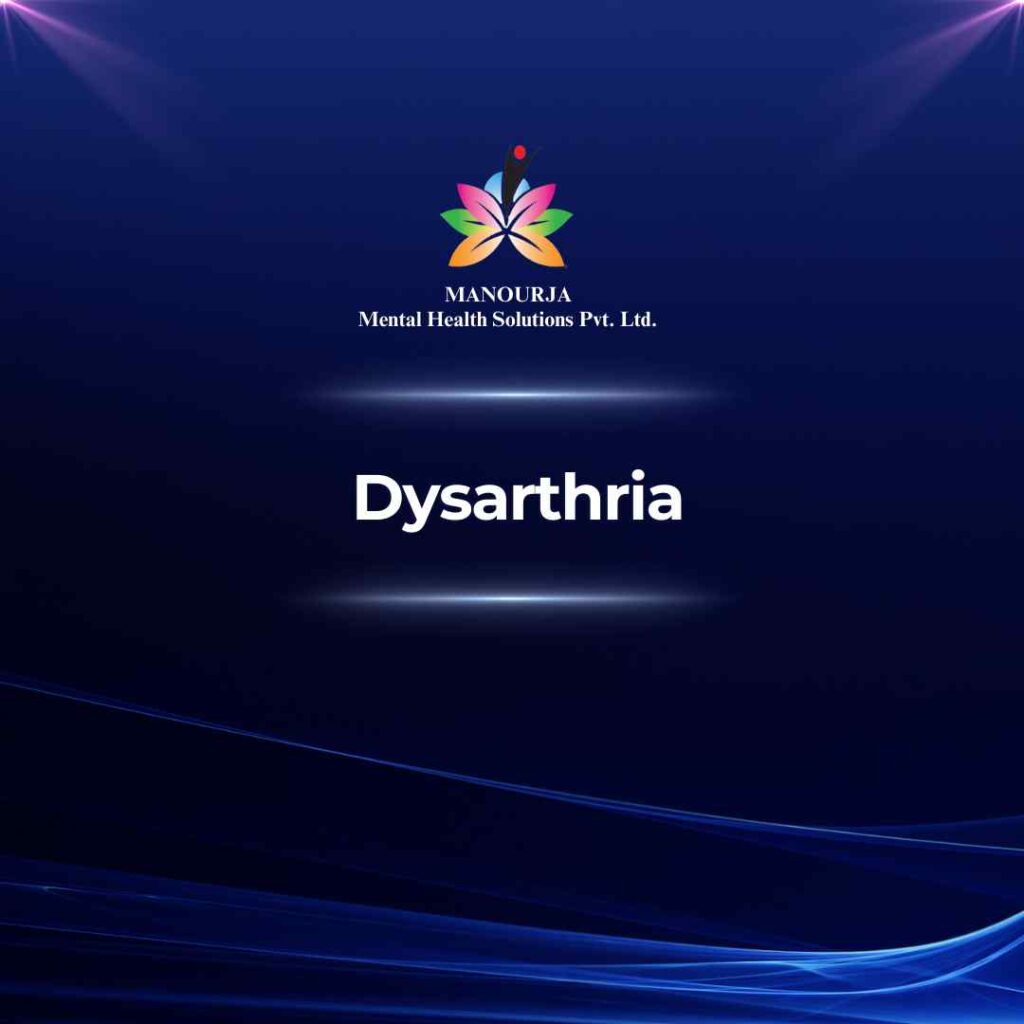Dysarthria

Dysarthria is a motor speech disorder resulting from neurological injury that affects the muscles used in speaking, such as the lips, tongue, vocal cords, and diaphragm. It is characterized by poor articulation of phonemes (the sounds of speech) due to muscle weakness, paralysis, or lack of coordination. This condition can affect speech clarity, volume, speed, and rhythm, making communication challenging.
Dysarthria as a Sign and Symptom of Mental Illness
Dysarthria itself is not typically classified as a mental illness but rather a symptom of neurological and sometimes psychological conditions. However, it can significantly impact mental health by contributing to frustration, social isolation, and reduced quality of life. Dysarthria can be present as a sign and symptom in various mental and neurological illnesses, often indicating underlying brain dysfunction.
Mental Illnesses and Neurological Conditions Associated with Dysarthria
- Stroke
A stroke can damage parts of the brain responsible for motor control, including those that control speech muscles. Dysarthria is a common symptom following a stroke, depending on the location and extent of brain damage.
Parkinson’s disease is a progressive neurological disorder that affects your movement. Dysarthria can occur in Parkinson’s patients due to muscle rigidity and bradykinesia (slowness of movement), impacting speech clarity and volume.
- Amyotrophic Lateral Sclerosis (ALS)
ALS is a neurodegenerative disorder that affects motor neurons. Dysarthria in ALS patients results from the gradual weakening and atrophy of speech muscles, making communication progressively more difficult.
- Multiple Sclerosis (MS)
MS affects the central nervous system. Dysarthria can occur in MS patients due to the disruption of nerve signals to the muscles involved in speech, leading to slurred or slow speech.
- Traumatic Brain Injury (TBI)
TBI can result in dysarthria if the injury affects areas of the brain responsible for motor control and speech production. The severity of dysarthria depends on the extent and location of the brain injury.
- Cerebral Palsy
Cerebral palsy is a group of disorders that affect movement and muscles, often caused by damage to the developing brain. Dysarthria can be a symptom in individuals with cerebral palsy, impacting their ability to speak clearly.
Huntington’s disease is a genetic disorder that causes the breakdown of nerve cells in the brain. Dysarthria in Huntington’s patients results from the loss of motor control, affecting speech muscles and leading to speech difficulties.
- Myasthenia Gravis
Myasthenia gravis is an autoimmune disorder that causes weakness in voluntary muscles, including those involved in speech. Dysarthria can occur due to fluctuating muscle strength, leading to inconsistent speech clarity.
- Brain Tumors
Brain tumors can cause dysarthria if they affect areas of the brain responsible for motor control and speech production. The symptoms can vary based on the tumor’s size, location, and growth rate.
- Wilson’s Disease
Wilson’s disease is a rare genetic disorder that causes excessive copper accumulation in the body, including the brain. Dysarthria can be a symptom due to the toxic effects of copper on the nervous system.
Conclusion
Dysarthria is a significant symptom of various neurological and sometimes psychological conditions. It impacts speech and communication, which can further affect an individual’s mental health and social interactions. Understanding the underlying causes of dysarthria is crucial for effective diagnosis and treatment, helping individuals improve their communication abilities and overall quality of life.
At MANOURJA, we believe in the transformative power of counseling. Our experienced therapists offer a safe and supportive space where you can explore your thoughts, emotions, and challenges. Through personalized counselling sessions, we’ll work together to develop coping strategies, build resilience, and achieve lasting positive change. Discover the path to a healthier, happier you with MANOURJA counselling services.
MANOURJA Rehabilitation Services
At MANOURJA, we’re dedicated to helping you in rebuild your life, after difficult times. Our rehabilitation services focus on understanding what you need to move forward, whether you’re recovering from addiction, trauma, or any psychological – social challenges. We create personalized plans, that are all about helping you, regain your strength and find hope again. With a caring team by your side, you’ll have the support to make real progress and take steps toward a brighter, healthier future.
